Universe ’71: Welsh Ultra-Rare Heavy Rock Unearthed
The incredibly rare, self-titled album by Universe is finding its way back onto shelves, thanks to a recent reissue from Ancient Grease Records.
What’s even more fascinating is that this Welsh band has finally told their side of the story for the first time, filling in many unknown details about one of the heaviest hard rock groups from the ’70s that seemed to vanish almost as soon as they formed.
From the first strum of a six-pound acoustic guitar to the mind-blowing influence of Chuck Berry, music was a calling for Steve Finn. Along with Mike Lloyd, John Healan, and the two Mikes, “Sponge” Blanche and Rob Reynolds, he was part of a heavy rock explosion that eventually transformed Britain. They began as the blues-rock band Spoonfull, a nod to Willie Dixon, and their sound was as gutsy as their blues influences. As the ’60s gave way to the ’70s, their music became more progressive and complex, leading to a new name: Universe. With a 12-string Rickenbacker, they developed a unique two-part harmony guitar sound that set them apart.
After a grueling residency at the legendary Top Ten Club in Hamburg, the real adventure began when they found themselves stranded in the Arctic Circle. Instead of letting the frozen North swallow them, they turned their chilling predicament into a blistering, three-day recording session. A local journalist discovered them, which led to the serendipitous recording of their debut album in a basement studio. The album, which was only pressed in a run of 300, became a legend in Norway and a Holy Grail for collectors. But for the band, it was just another chapter.
Back in the UK, record companies weren’t interested. The dream ended when members left the band, and Finn joined Sassafras. The story of Universe was far from over, though. In 1992, a Norwegian detective-like fan named Joern Andersen from Colours Records tracked down the surviving members and reissued the album. This revived interest in the band’s music and led to another album, ‘The Wheel,’ which featured old demos and live recordings. The highlight of Finn’s time in Universe was the sheer joy of creating music, with songs like ‘Cocaine’ and ‘Waiting for Summer’ being his favorites.
All of this can now finally be heard again, thanks to the great work of Ancient Grease Records.
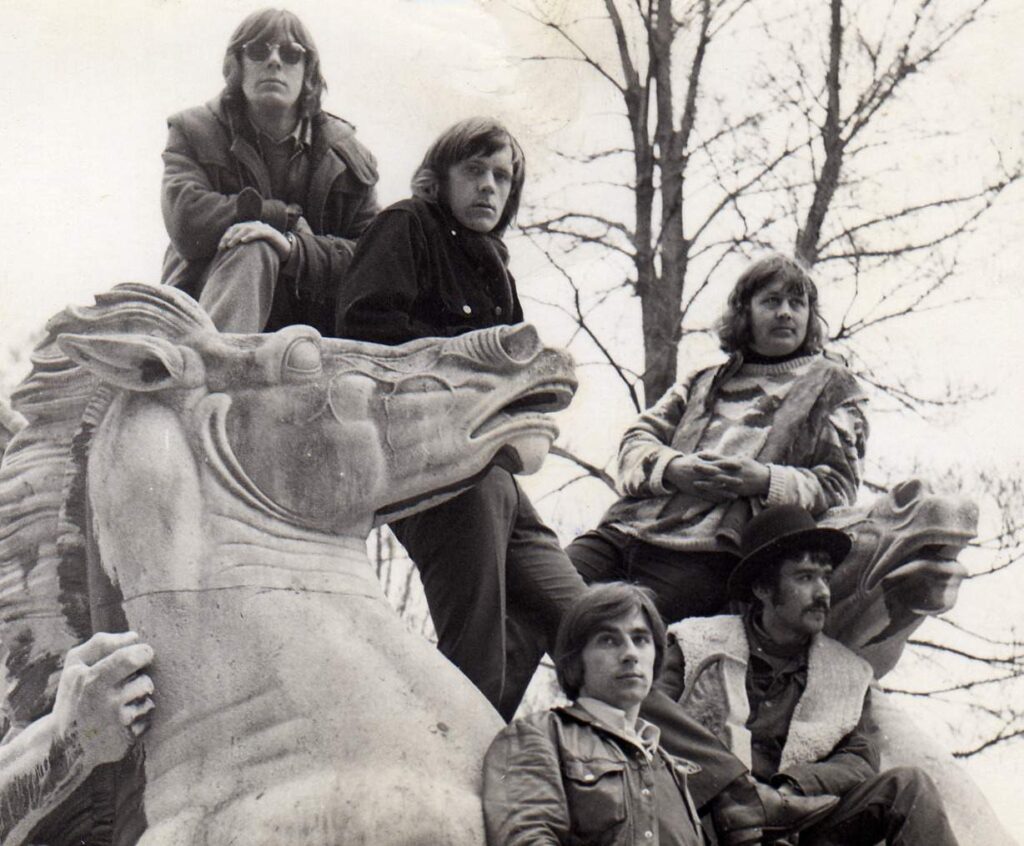
“We were halfway through the set when some guy tried to bite through the master mains cable.”
Right, let’s get started. I’ve been enjoying your album for years! What a perfect dose of bluesy hard rock. Honestly, it deserved so much more attention back then. So, it’s no surprise when Adam from Ancient Grease Records mentioned he finally tracked you down and the reissue was on the way. How did Adam get in touch with you, and what was your initial reaction when he brought up the idea of doing a reissue?
Steve Finn: I hooked up with Adam maybe about a year ago. I was pissed off hearing about bootleg vinyl and CDs coming out, and we could not find out where from or get any payment for them. I had several emails from vinyl reissue companies offering a bona fide deal, and after doing some research, chose a label in South Korea. They wanted vinyl only, one thousand pressings, internet sales only, and we were free to do any other deals for the songs. When the eighteen months was up, we could resign or go elsewhere. I had many messages with the guy and he seemed genuine. He sent us half the money upfront as an advance, with the rest due on the release date. All seemed well. I sent song master copies, photos, and all the info I had. Unfortunately, he had a death in his close family and could not complete. He was very apologetic and told us to keep the advance. I cannot remember the company name but he was Sangman Kim. While planning the next move, Adam found me on Facebook and after messages and a couple of phone calls, Mike Lloyd Jones and I decided he sounded like the guy.
Let’s rewind a bit, back to your childhood. Where did you and the other Universe members grow up? What was life like back then? Tell us a bit about the everyday stuff.
Mike Lloyd Jones and I are the only two members of Universe left now. The original five were him and me (we went to the same high school in Cardiff, but he was a year ahead and, strangely, we had never met or mixed. It was a case of sticking with your own age group in those days of the mid 60s). Other members were John Healan (bass), Mike “Sponge” Blanche (organ), and Rob Reynolds (drums). I grew up in Cardiff, the capital city of Wales. I would not swap being a teenager in the 60s for any other era. The explosion of music and lifestyle at that time affected life in Britain for all concerned.
We had previously looked to the USA for it, but now we were at the front of all things groovy. The Beatles, Stones, Animals, Kinks, etc., then Cream, Jethro Tull, Led Zeppelin, Yes, and many more.
I got my first guitar at fifteen. It came from a catalogue called Kay’s, probably like your Sears and Roebuck, and that was me hooked. We only had three TV channels, and pop music on the radio was rationed to a few hours on the weekend. There was a great station called Radio Luxembourg, which came from Europe, but reception would come and go unpredictably, which was frustrating as I could rarely hear a full song. Also from Germany, we could sometimes get AFN, American Forces Network, to hope for rhythm and blues and rock and roll.
Being a curious kind of young man, I wanted to know where this stuff that influenced me was coming from. When I read in the 60s UK music papers, New Musical Express and Melody Maker, that most of the above bands were dropping names like Muddy Waters, Chuck Berry, Ray Charles, John Lee Hooker, B.B. King, and others, I started looking for their records. No internet in those days to go to, so it was the local record stores or nothing. I got lucky. A shop called City Radio was run by a pretty straight-looking guy with Buddy Holly glasses. I mentioned a couple of those magic names, his eyes brightened, and he led me to a dark corner of his shop. Lo and behold. Aladdin’s Cave.
By 1967, Cardiff was showing healthy signs of bands playing not Top 20 pop, but R&B and soul. Booker T. and the MGs, Wilson Pickett, Otis Redding, Sam Cooke… and then came Jimi Hendrix. He played Cardiff a couple of times on package tours in 1967 and 1968 and blew every local guitarist away.
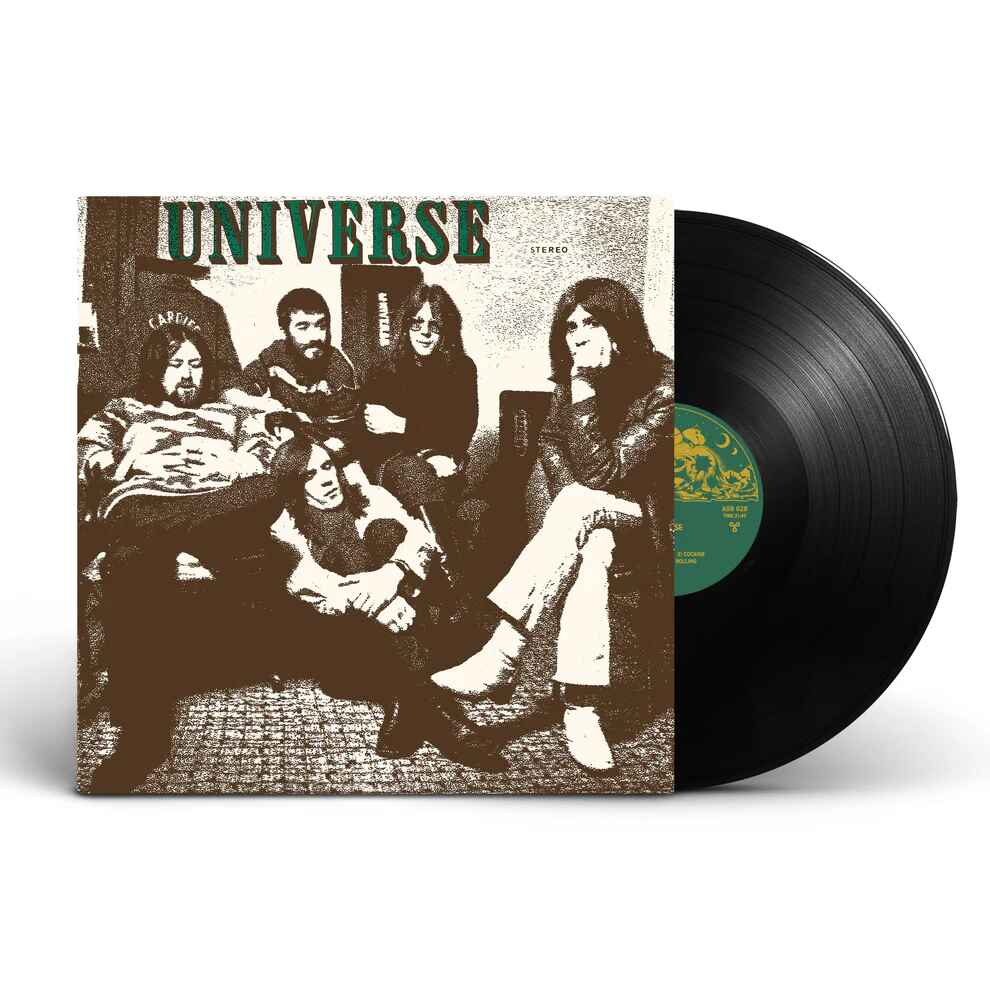
So, when did music first grab you? Was there a moment, a song on the radio, a gig, or a single that hit you, and you thought, “Right, I’m getting a band together”?
When I got that first guitar, it cost six pounds (five dollars maybe). Because it was an acoustic, the early songs I learned were Dylan and The Beatles. But one day on the radio came “Johnny B. Goode” by the god that was Chuck, and my life went into another gear. Meeting other players at youth clubs, where we would gather in one corner while the normal kids played table tennis or discussed flared jeans and tab-collared shirts, led to meeting a like-minded guy called John Morgan. He mentioned his friend played in a group and had a Fender Stratocaster, and I said, “I wanna meet him.” It was Mike Lloyd, and I became the vocalist in his band Deep Blue Centre. I attach a poster from July 1967 where we played in a roller-skating rink on a round stage while the kids rolled around us, my first paid gig.
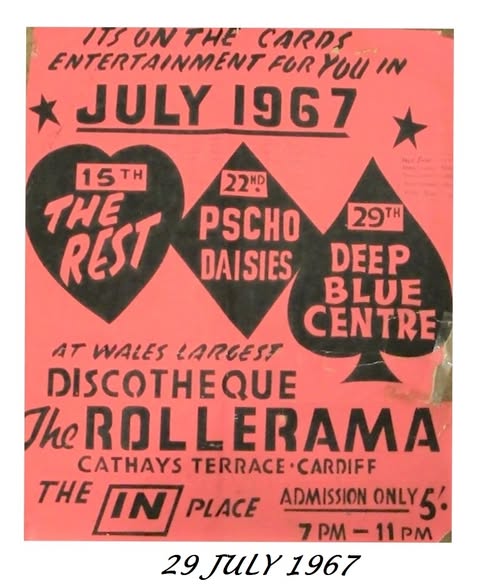
Now, early days of Universe. I’m guessing all of you had been in other bands before? What were they called? What kind of music were you playing? Any releases, even if it’s unreleased stuff from that period?
Deep Blue Centre did not last very long. Mike Lloyd, being a cut above playing-wise at that time, had an offer from another band and went his own way. I was doing high school exams but continued to look around the Cardiff scene. If you check out the poster I sent, there is another band on it called The PsychoDaisies. Well, it was 1967. They were looking for a vocalist and I got an audition. This seemed to go well, and I started gigging with them. The bass player was John Healan, and that was the beginning of a long-lasting friendship of over fifty years. Sadly, he developed Alzheimer’s and went to that big gig in the sky last year. The drummer was Rob Reynolds. We wanted to get more blues into our repertoire, John Mayall’s Bluesbreakers being a big influence in the UK about that time. Clapton, Peter Green, Mick Taylor, John McVie, Jon Hiseman, and others had featured with Mayall before going their own ways.
A disagreement with the guitarist, whose name is gone in the mists of time, brought Mike Lloyd back, and after looking for an organist, we found Mike “Sponge” Blanche. Early 1968 saw a name change to Spoonfull, after the Willie Dixon song, and we were on our way.
Cardiff in the psychedelic ‘60s must’ve been something! You were blues-influenced and had the band Spoonfull. How did that come about, and what was your sound about, aside from just playing blues?
Our repertoire was Cream, Mayall, Freddie King, Little Walter, and Sonny Boy (I had worked out cross harp playing on the harmonica) and Fleetwood Mac, until the British Progressive Rock thing came along. Then we mixed some of that in with Jethro Tull, Yes, Spooky Tooth, and the US band Vanilla Fudge. There was a great Welsh band called Eyes Of Blue that we followed all over whenever we could. Excellent musicianship (as good as those I just mentioned above) but their record company and management support was poor, and their three albums never sold.
Mike and I began to write our own things then to add in. Some later became the stuff on the first LP. I was still in senior high school and the other guys were holding down day jobs at this point. As we became less bluesy, we decided to change the name to Universe around early 1970.
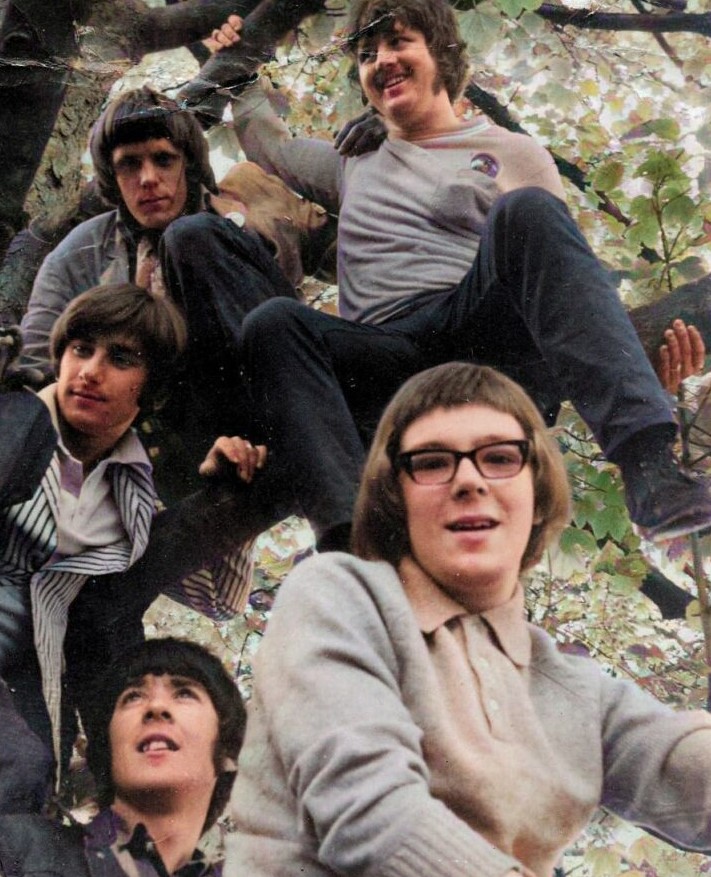
So, after a couple of years, you changed the name to Universe. What led to that?
Now featuring some original songs as well as the Prog covers, I was finally deemed by the guys good enough to play a 12-string Rickenbacker I’d bought. It gave us a different sound from other bands around, and Mike and I developed some two-part harmony arrangements for the guitars, which again made our sound stand out. We went into a little two-track demo studio and put down two of our songs, the first time we’d ever heard ourselves back. That tape disappeared many years ago, unfortunately.
A busy South Wales booking agency, J C Promotions, got to hear of us and offered a management deal. We were now gigging four or five nights a week around Wales and the West of England. You asked about memorable gigs. Try this: a holiday weekend in Torquay, a beach resort in Devon, South England. The town was full of young skinheads, a UK phenomenon similar to your Rednecks, who were in town to see a show by reggae star Desmond Dekker. Skinheads were reggae freaks. We got a late call to do the show, not knowing the circumstances, as Desmond’s replacement. Nobody told the skinheads either. The hall was full for all of five minutes, then the audience left en masse to drink and fight all around the town. Thankfully, they didn’t take it out on the poor, innocent, young musicians.
We attended an audition in Birmingham for dates at the Top Ten Club in Hamburg, where The Beatles and many other 60s groups had appeared. There were fifty or sixty bands there, but the thing was very well organised. Each band set up, did two songs, and if the guy in charge liked what he heard, he asked for a couple more. We did four.
That’s how we met the amazing Rikki Barnes. A Scotsman, former saxophone player, who was the club manager and had been there since the early 60s. He got drunk with Alex Harvey, argued with the young John Lennon, and once sacked Ritchie Blackmore for playing too loud. His stories were fascinating.
We did five trips to the Top Ten in the next twelve months. Two weeks at a time, four 45-minute sets a night with five on Fridays and Saturdays. It certainly improved us beyond measure.
Another demo session, this time at the well-known Rockfield studio near Monmouth on an eight-track machine, gave us two songs (‘Waiting For Summer’ and ‘Shadow Of The Sun’). These later were added to The Wheel album put out by Colours Records of Norway.
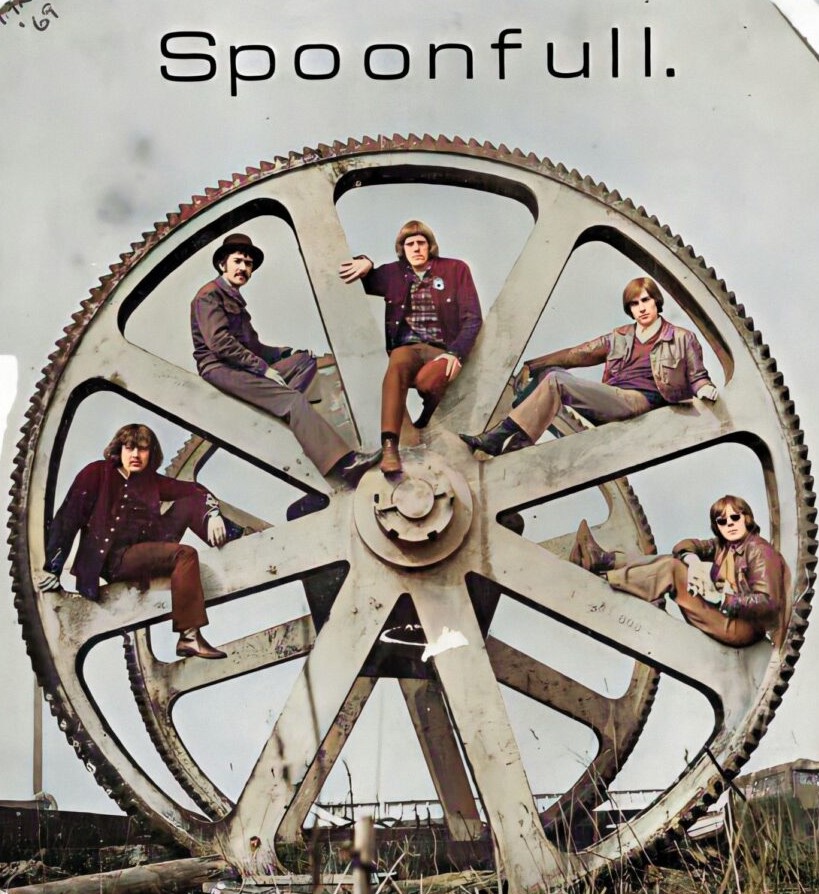
What led you to Norway?
We had other dates in Europe besides the Top Ten. Kiel, in Germany, in December, was an education in cold, snow, and shitty little late-night clubs. We did meet an Italian band called PFM (Premiata Forneria Marconi), who I believe later in the 70s had a couple of albums out. At this point, drummer Rob Reynolds had had enough. Being recently married, pressures from home meant he wanted to call it a day. We made some phone calls back to Cardiff and got Steve Keeley (then with a band called Kimla Taz) to come out to join the band. There was a surreal moment when the two drummers passed each other on the gangplank of the ship, one coming off and one going on, both carrying their kits. This was the only personnel change in Universe’s time.
Then on to Copenhagen, Denmark, and a complete change for the better. A happy drummer, a welcoming venue called The Revolution Club, where name artists coming into town would call in. We met Iron Butterfly and Johnny Winter, who were happy to talk about life on the road. Yes, who we had a minor friendship with, having supported them a couple of times, got us seats for their show in Copenhagen.
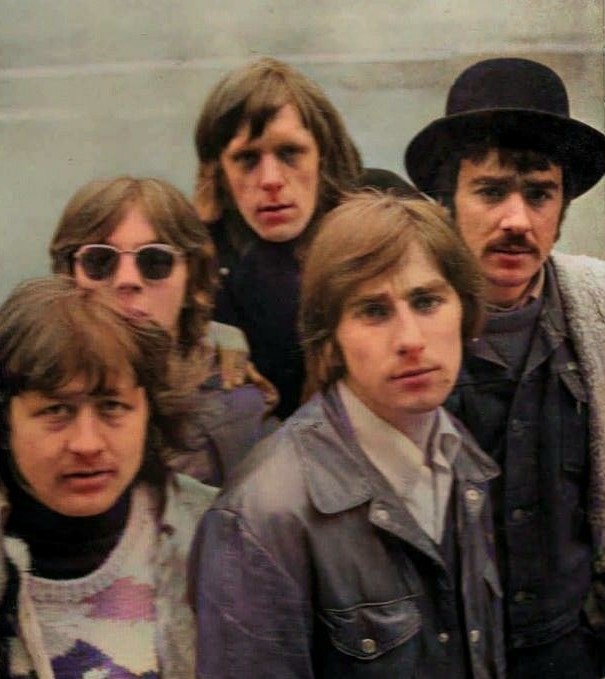
Returning to Wales, within two weeks we were told to get ourselves back to Denmark, en route for a tour of Norway. So Copenhagen to Oslo by ferry boat to meet the agent for the tour. He told us we were a week or so late and some of the dates had been missed. What he didn’t tell us was we were a replacement for another band who couldn’t make it. Agents? It was still February and wintertime in Scandinavia. Our first gig was 500 miles to the north. Whoopie! It took us three days to get there, to a small town called Finnsnes.
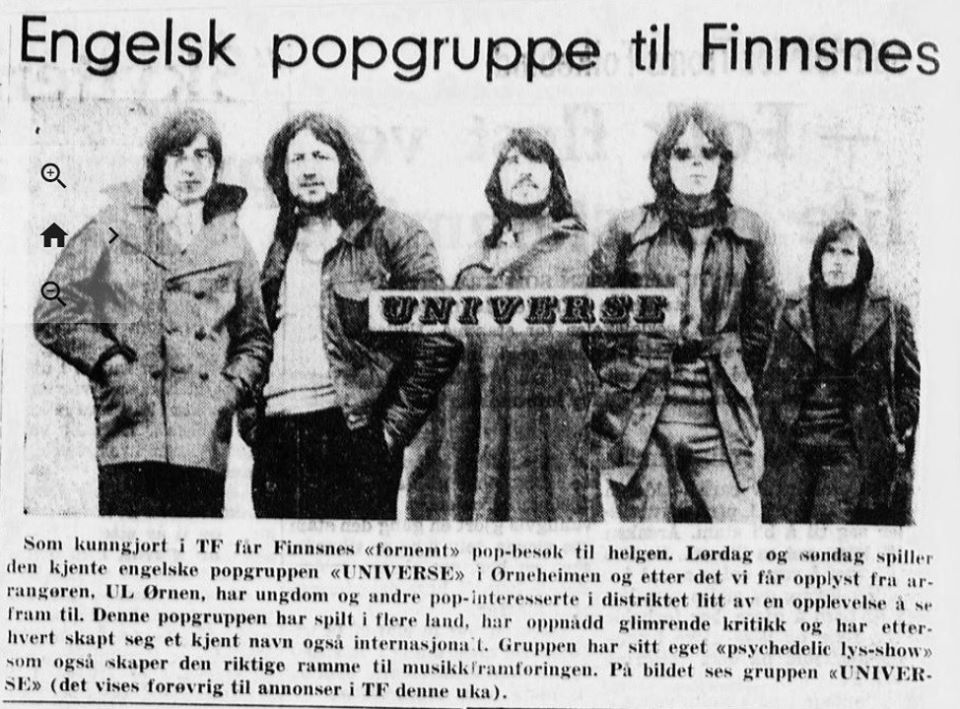
Other dates followed, driving in convoys and waiting for a snowplough to clear the roads ahead. We criss-crossed the Arctic Circle to small towns that hadn’t seen a live band perform. Despite the language barrier, we communicated with the extremely friendly young people who came out to see and hear us.
That’s when the agent, who had accompanied us thus far, said he had to return to Oslo to organise more dates. We never saw him again. A local journalist covering our travelling circus heard about this and put out several articles in local newspapers telling the story of this British rock band stranded in Northern Norway. We were contacted to play clubs and town halls. One club, Bleak House in Mo-I-Rana, let us live in the dressing room for five days.
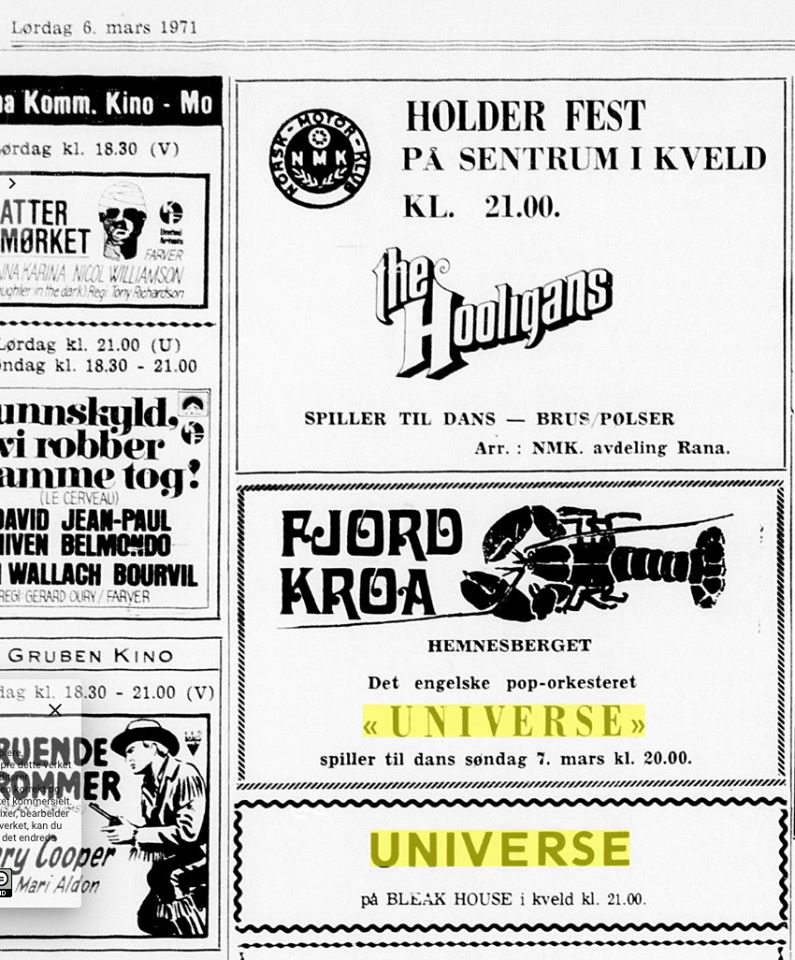
Working our way south, we arrived at Mosjøen for a date at the village hall. There we met a young man, Nils Oybakken. His family had an electrical store, and he had a small studio in the basement. He ran a little record label, Experience, and had heard about us on the local airwaves or grapevine. Would we like to visit his studio? Sure we would… and we did. Do we fancy making a recording? Certainly.
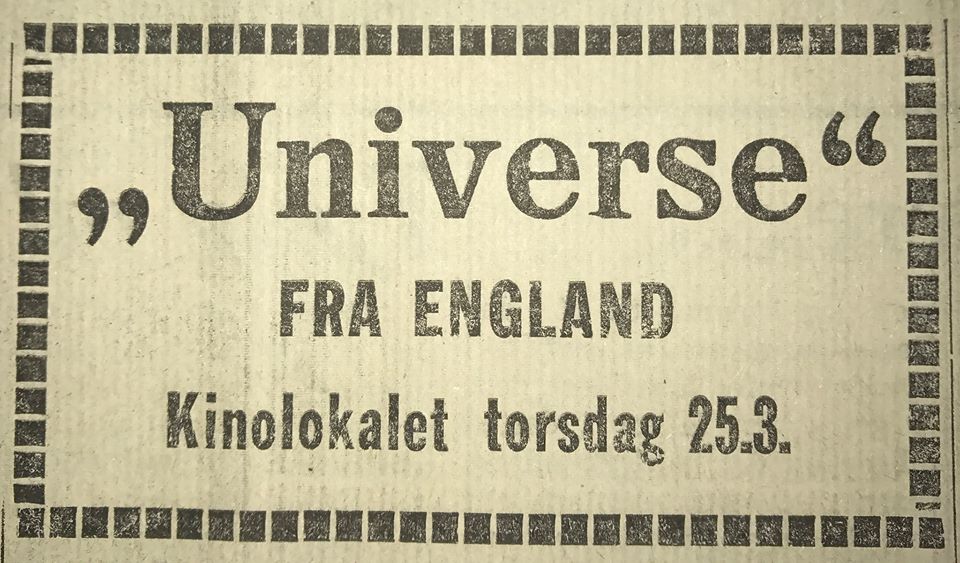
We recorded two songs on a two-track Revox tape machine (A Woman’s Shape and Rolling). The whole band played on track one and the vocals on track two. Could he issue them as a 45 single? Definitely!
That was the start of it all. Got any more songs? Oh yes, loads. Shall we put them down? Why not. In three days we had most of an album. Up to then, he had only issued a few singles of local artists, girl vocalists, and country and western things. I think, with the story about us going around, he thought maybe an LP would work out.
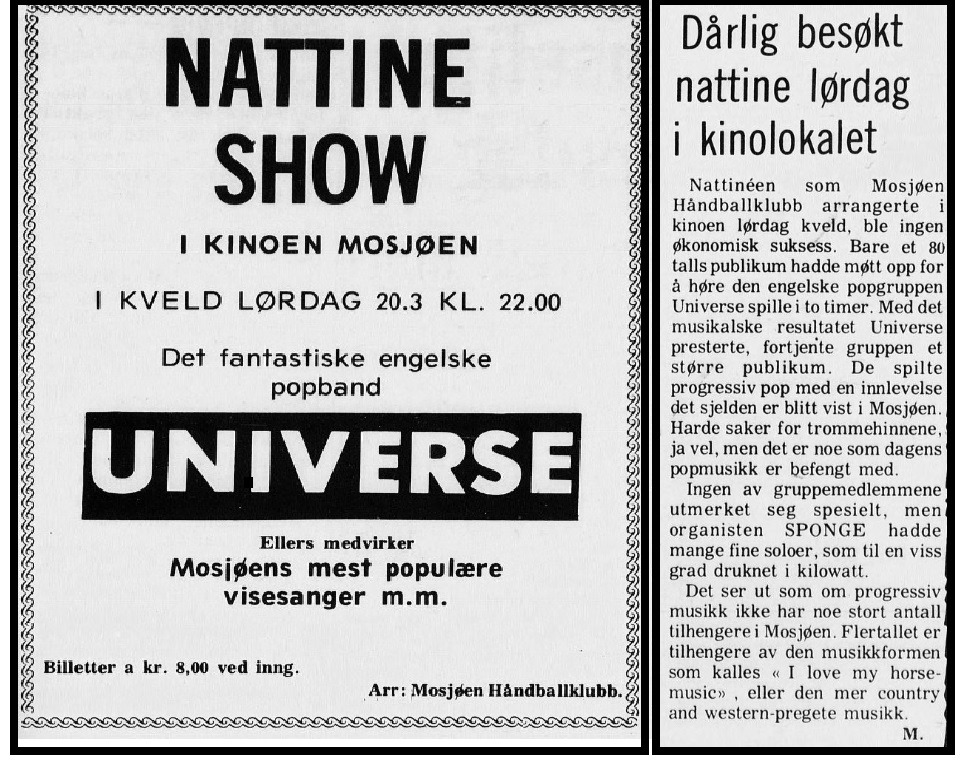
That’s how it went. Pure luck and serendipity. A few photos for the cover, which we left entirely to Nils. An amount of money sufficient for us to get down to Oslo. A couple of phone calls to Copenhagen for another stint at The Revolution. Then three weeks in Hamburg and finally back to Wales.
Over the years, I have read many fancy tales of what went on up there in the snow. Breaking down right outside a recording studio. Being taken in out of a blizzard by the owner. LPs issued without covers, etc. There were only 300 pressings of the album. The single maybe more so, I’m not sure. Later that summer, when back in Cardiff, the vinyl arrived. Six 45 singles in picture covers, six albums with no covers, as there was a hold-up with printing. Despite the rumours, as far as I’m aware, these six are the only ones without covers. I didn’t see a cover until 1992. I will get to that later. You now have the correct version of the story.
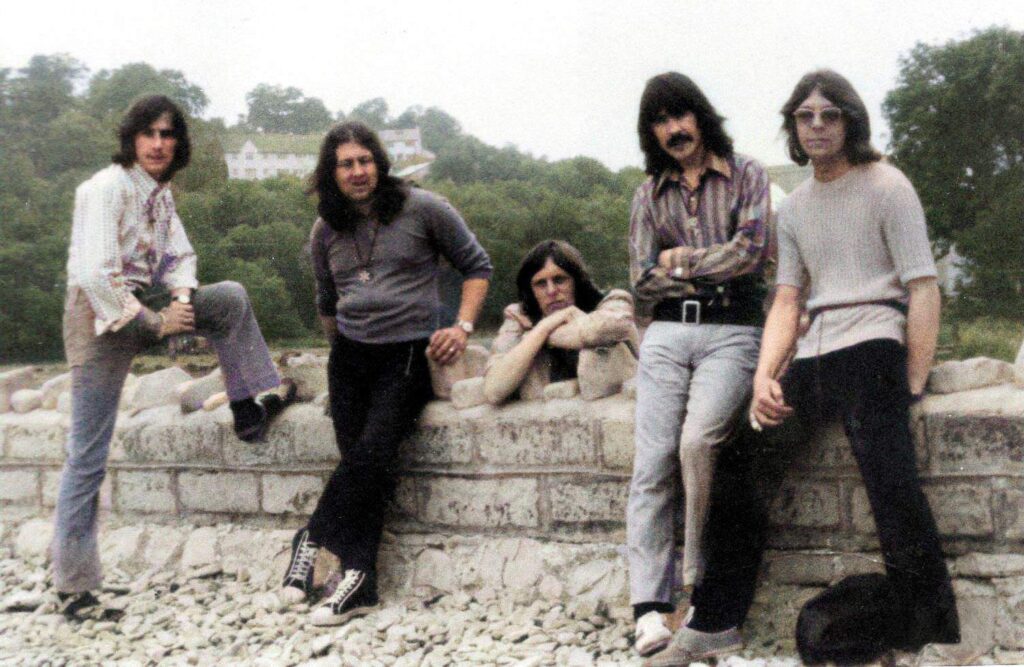
So, what happened after you came back to the UK?
Back in the UK, SS Universe hit a giant iceberg. We took the LP around record companies in London. No dice. Not commercial enough. Won’t get played on the radio. We’re faced with more small venues, trips to Europe, etc. Without record company backing, we will continue to be a support band for those above us. We tried more demos at Rockfield, aiming for a more commercial rock/pop appeal. They can be found on The Wheel, which I will get to soon.
Then John Healan and Steve Keeley decided to call it a day. Home pressures again. They needed to earn a living to look after a family. Bruce Springsteen has been quoted as saying that music cannot be pursued if you have baggage slowing you down. Cruel but probably true. For me now, the heart of the band, the rhythm section, has gone.
We auditioned bass players and drummers, as we had an upcoming Top Ten stint. We picked suitable guys and learned enough covers material, rather than our own, to get through the engagement. The bass player I had known for years and he is very capable (now with Van Morrison). But for me, the magic is missing. When we returned to Wales, I cashed in my chips and we decided to end the dream.
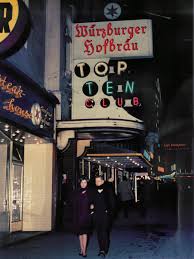
What was it like to suddenly have all this renewed interest in the 90s after so many years?
Colours Records and ‘The Wheel’ album. In 1992 I got a phone call from a guy called Joern Andersen. He had been playing detective for a while trying to find members of Universe. He tried every Finn in the Cardiff phone book… there are a few but not too many. He finally got my mother, who passed my number on. Joern ran a small, vinyl-only record label in southern Norway specializing in re-issuing late 60s and early 70s Progressive Rock. Apparently, our LP was something of a legend in Norway, and finding one was a Holy Grail moment for collectors. He badly wanted to repress and put out Universe. He had already discussed a deal with Nils Oybakken to lease his master copy, at a pretty hefty price, I might add. We knew nothing of this, not having had any contact with Experience since we left Moesjoen in March 1971. No sales info or royalty statements of any kind. The whole enterprise seemed buried and forgotten.
Joern, being a very friendly and straight guy, went the whole distance to contact us and get approval. He also paid us a royalty for the project, which was a particularly pleasant surprise. He travelled to Cardiff, met Mike Lloyd, Sponge, and myself to complete the agreement. John Healan was living in Cornwall by then, and Steve Keeley had tragically died from leukemia in 1982 aged just 32. It was then that the subject of the cover arose. I told him I had never seen one, and he said he had a spare one he had picked up over the years. He promised to send it to me and was as good as his word.
The reissue came out with a small black and white brochure. I believe the press run was seven hundred, and it seemed to sell pretty well. Joern sent me reviews from specialist vinyl magazines from Italy, Japan, and the UK. He asked if we had any other recordings that had never been put out. We had the first Rockfield two-song demo, the later Rockfield stuff, and a slightly old live tape from the Yes gig. I did some restoration work and sent him the lot. After some discussion and tweaking, he was happy to release ‘The Wheel.’ Side one was the newer Rockfield stuff and side two the live performances. The earlier two Rockfield recordings were included as a bonus seven-inch single together again with a black and white booklet. The cover was adapted from a Spoonfull promo picture.
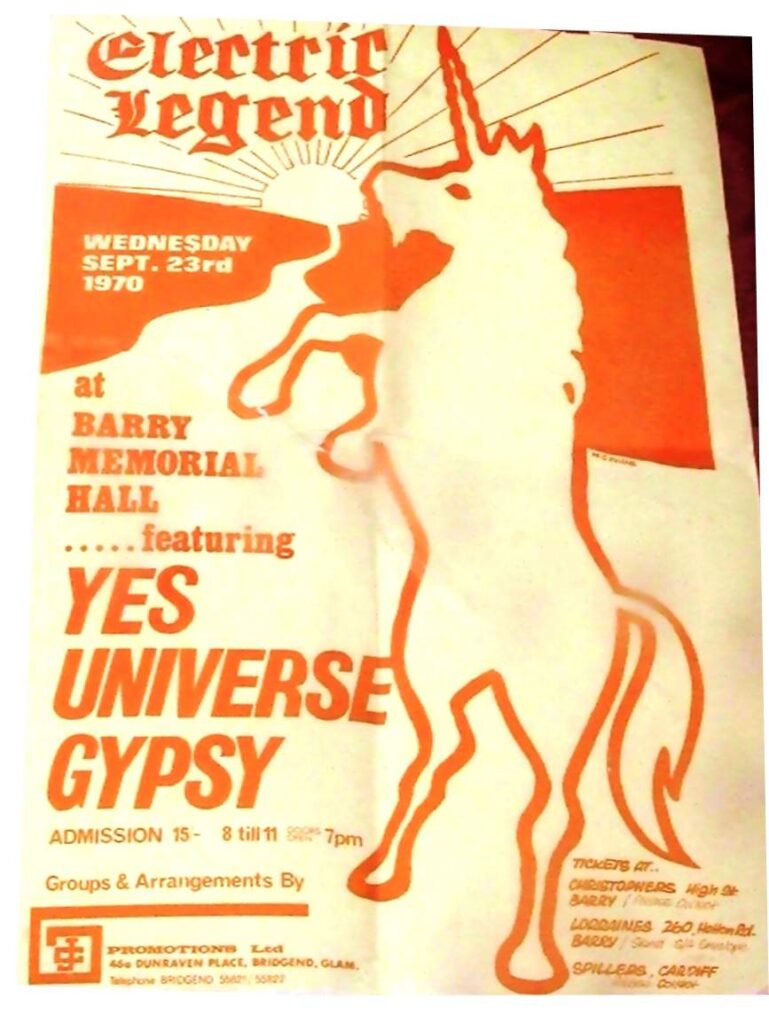
All this interest in the band got us thinking. We remembered things we had started way back but never finished and began writing and recording again. We sent Joern a couple, ‘Outside Looking In’ and ‘From The Floor To The Ceiling,’ and said it was Universe for the nineties. Was he interested? Yes, he replied. Then disaster, when we were working on a third piece, ‘Astral Plains,’ Colours went bust.
Joern was very apologetic, but company finances meant the label ceased to operate. That was the end of the project, but I still have three or four completed Universe songs that have never seen the light of day. I sent them to Adam of Ancient Grease Records to maybe complete the Universe picture, but I do not think he sees it that way.
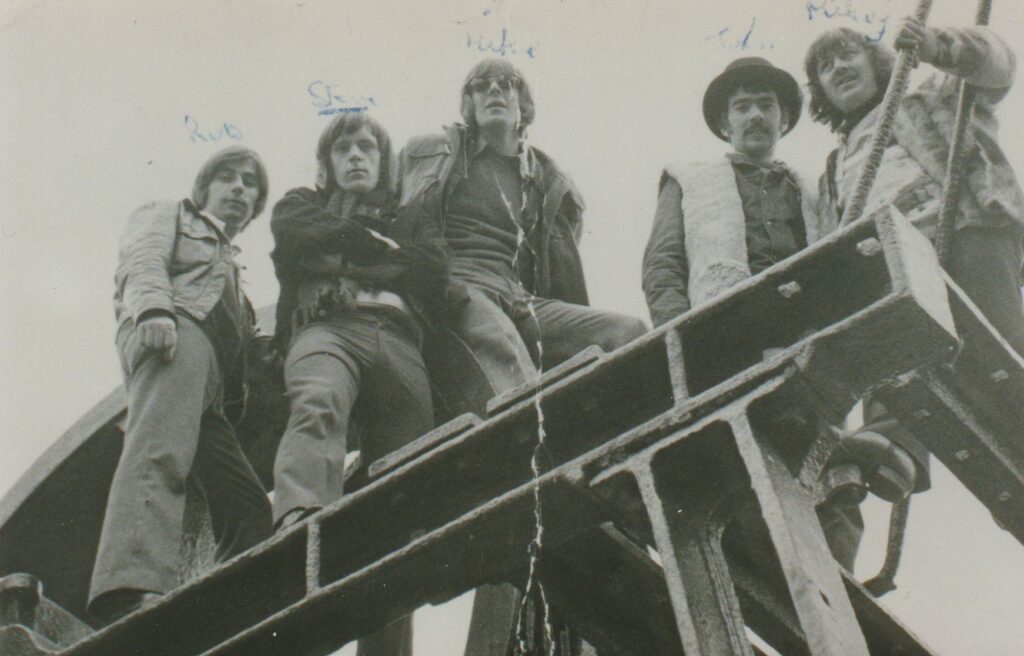
You went from being a guitarist in Universe to a bassist in Sassafras. How did that change in roles affect your approach to songwriting and performing?
After the demise of Universe I got married to a great girl, Jane. Still am. I played in a covers band just working locally. I knew the Sass guys, being Cardiffians, and coincidentally their first drummer was Rob Reynolds. They had just got their initial record deal, featuring twin guitar parts as Universe had done a few years before (so had Wishbone Ash, Blossom Toes, and Home). They had some of their own songs ready to go but needed a couple more and took two of mine. Constantly gigging five or six nights a week around the UK, the record sold well enough to get them offered a second release. The bass player developed a drink problem, thus becoming unreliable both offstage and on. They let him go and then realised he was the main instigator of their material. The other guys contributed arrangement ideas, riffs, etc., but the cake needed mixing and baking before the icing goes on, and they had lost their baker.
I got a phone call from their manager: “Do you fancy joining Sassafras?” My answer: “Doing what? You already have two guitar players and a singer.” Reply: “Playing bass.” I had been recently playing bass in my first taste of country music in a local trio, but it was not an instrument I felt an affinity with.
The lure to get back into a touring, writing, and recording band proved too great and I agreed. After a few months I got a little itchy. A one-hour spot each night, same songs in the same order, even the same encore. On an instrument that did not give me too much scope to grow. No disrespect to bass players; there are some truly blessed guys around. Progress on the second LP had been sporadic before my coming. Gigging five or six nights a week left little room for anything except food and sleep. They had put down three, I think. I wrote four and with a good Neil Young cover of ‘Ohio,’ we got the record finished.
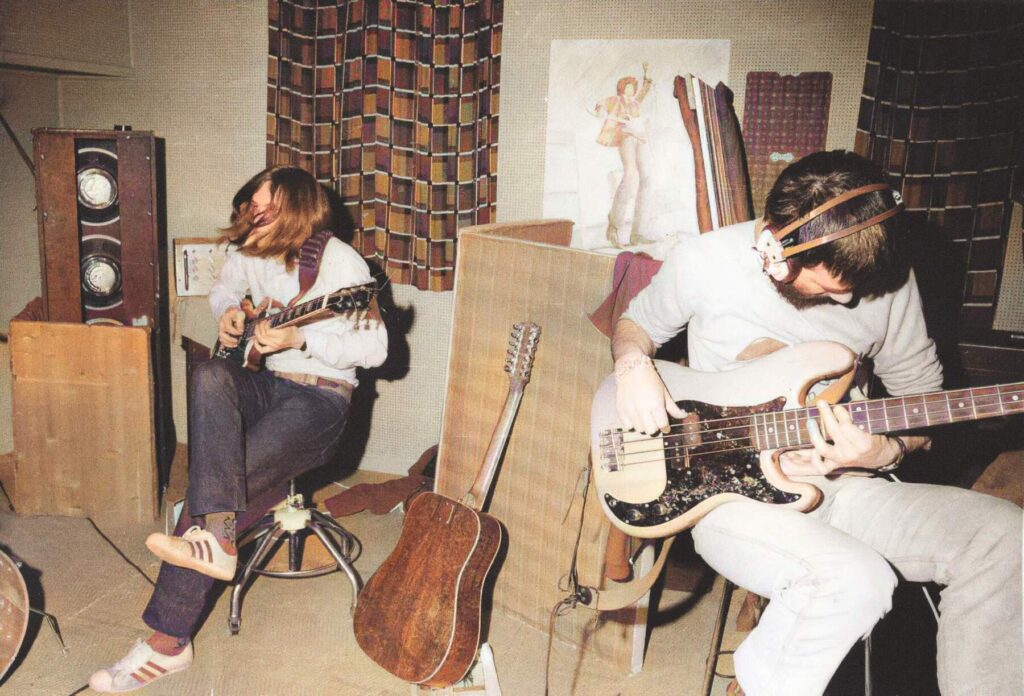
Now to the nitty gritty of the music business: contracts. Everybody in the band has their names on my songs. I am not an egotist but it hurt. The album was ready to go, publishing rights settled, too late to change anything now. I was not happy and said I would not want that to happen again. If somebody sits down and creates a song with me, like Mike Lloyd and I used to do, that is fine. It is a joint effort where we cooperate. But this felt unfair and I said so.
A month later, April 75, the LP comes out, we do a short tour of Holland, and boom, I have been replaced by the guy I replaced. It seems someone who can be controlled is better than someone who cannot. I am still in touch with a couple of guys from Sass today; there is no lasting animosity. But as a final comment, I still get the occasional, small but welcome, writer’s royalty from those songs. The ex-members I speak to have never had a cent. As the Mafia say, “It’s nothing personal, just business.”
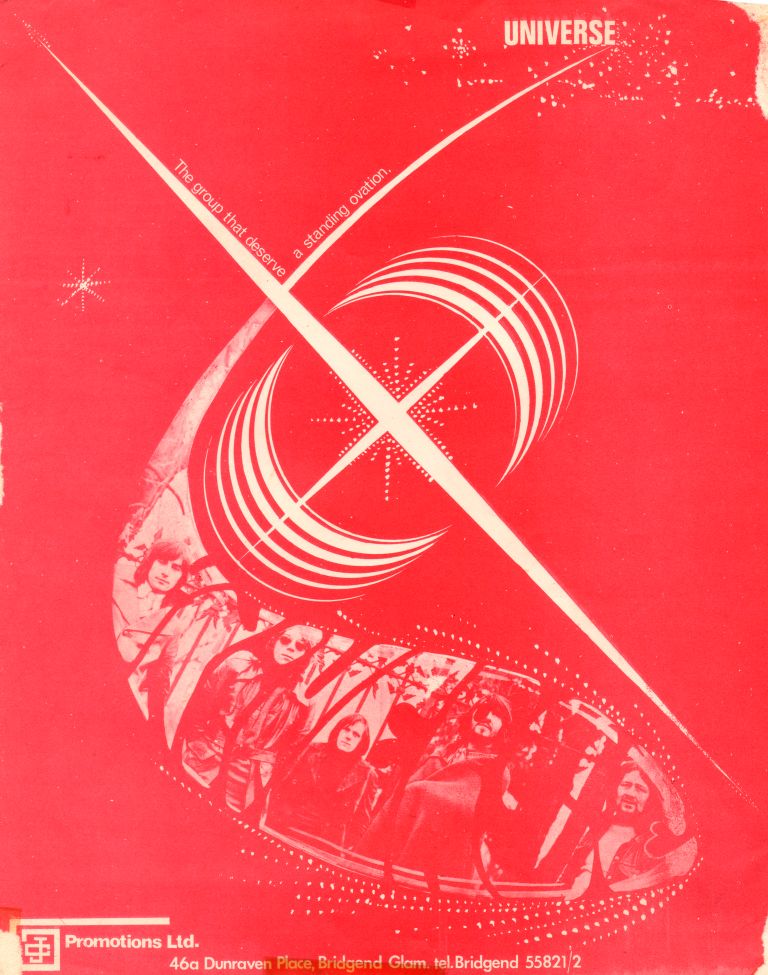
“Supporting Led Zeppelin in 1968 was a fine experience. Page and Plant were really nice guys.”
You played some pretty amazing college gigs, supporting bands like Yes, Fleetwood Mac, Rory Gallagher, Jethro Tull, Chicken Shack, Man, Black Sabbath. Any good stories from those shows?
Supporting Led Zeppelin in 1968 in Cardiff. They had just returned from their first US tour and the release of their first album. The venue was a ballroom with a revolving stage, one band’s gear at the front and one at the back. Zeppelin went on last as headliners, obviously. The venue was licensed to close at 10:30 p.m. They were still playing when management pulled the plug and spun the stage. Power cables were disconnected and their brand new Rickenbacker PA system, just brought over from the States, went up in smoke. Meeting Page and Plant was a fine experience as, even with all this chaos going on, they were nice guys.
Jethro Tull, also 1968. I had never seen a band like it. They looked like a bunch of travelling gypsies, equipment well past its sell-by date, a drum kit of different colours, nothing matched. Ian Anderson’s PA was a pair of Vox ACX30s, normally guitar combo amps, one on each side of the stage. A cable attached to his microphone was split into two separate leads connecting the Voxes. But they sounded terrific.
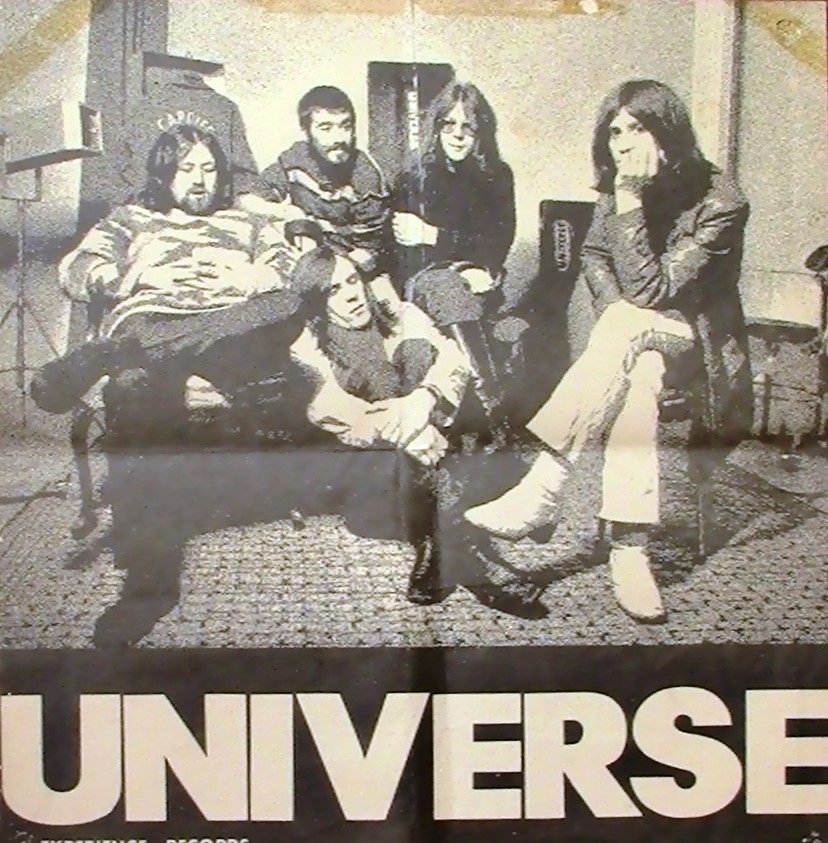
Meeting Gary Moore. Supporting his first band Skid Row in 1970? We had a friend with us, Paul Chapman, 18 or 19, a precocious guitar player, cousin to Dave Edmunds, later to replace Michael Schenker in UFO. He and Moore sat together in the dressing room and traded licks for about 20 minutes. Everyone in the room was gobsmacked. A short while later Moore left to join Thin Lizzy. Skid Row bass player Brendon “Brush” Shiels drove to Cardiff looking for Paul. The only info he had was “young kid, shit-hot guitar player, Dave Edmunds’ cousin.” He said this to three or four music shops in town and finally tracked his man down and whisked him off to London to be a rock star.
Rory Gallagher. Lovely man. I had met him in The Top Ten in Hamburg and showed him my 12-string Ricky. Months later we were supporting him and I was surprised he remembered me and said he was still trying to find one.
Circus. A good UK band whose sax player ended up in Genesis, Mel something? The bass player had his Fender bass stolen from the dressing room. It was later found under the room window in the snow, dropped from 20 feet for someone to catch it. They did not, and the neck was snapped in two. Bastards.
Scots band Writing On The Wall. Booked to play a college gig in Cardiff along with The Nice (Keith Emerson). By 7 p.m. they had not shown up, so we got the call to stand in. Easy for us, we were all ten minutes away. We did our slot, The Nice started their show. Writing On The Wall turned up at 9:30, having driven 300 miles. Sorry guys, your gig has gone.
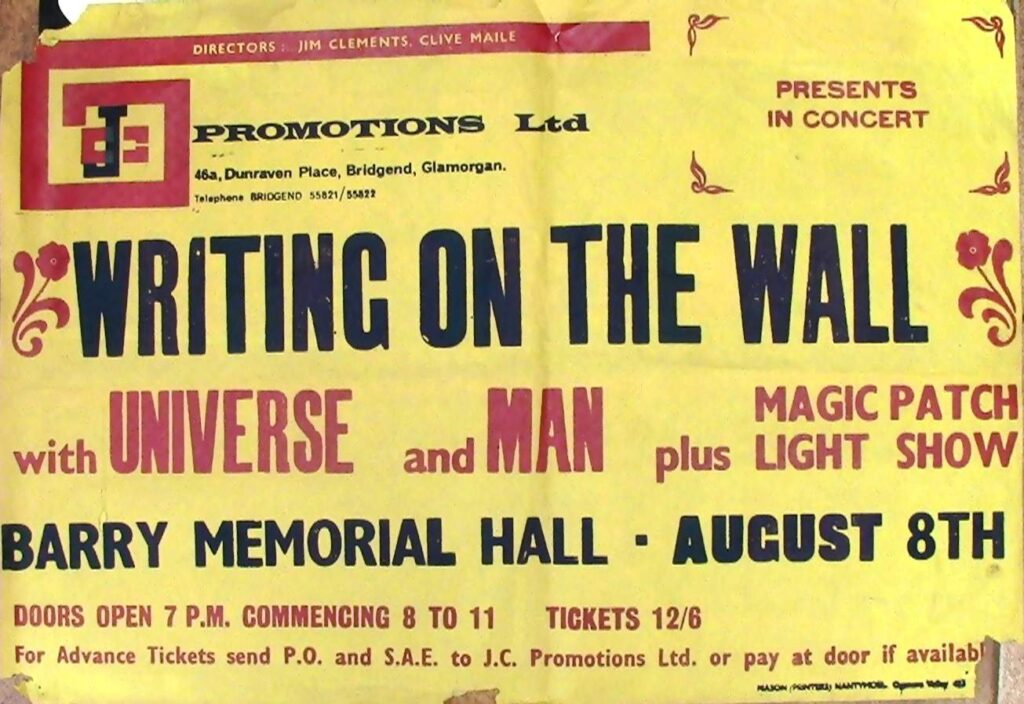
What’s the craziest gig you played with Universe?
One night in Norway we arrived at a small town called Glomfjord. We later referred to it as “One Flew Over The Cuckoo’s Nest” because it was weirdly nuts. Cut off for about three months of the year due to winter weather, we noticed a lot of the younger kids at the gig had similar faces and builds. It was Hollywood-style spooky. We were halfway through the set when some guy at the side of the stage shouted for us to stop the noise. We ignored him and carried on rocking. He took the master mains cable lead in his mouth and tried to bite through it. Oh fuck! He was marched away and thrown out before electrocuting himself and burning the place down.
What kind of gear were you using back then?
Now this is a memory tester. Hammond Organ and Leslie speaker. Marshall amps and cabs, WEM PA, very popular in the UK in the late 60s and early 70s. Groups bought a modular amp, small mixer, and two cabs. Then they could add more cabs with extra slave amps as and when they had more money. The Who had twenty or thirty of them linked together. Mike Lloyd played a Gibson Les Paul, John Healan a Fender Precision, me a Ricky 12, Ludwig drums, and Hohner Blues harmonicas.
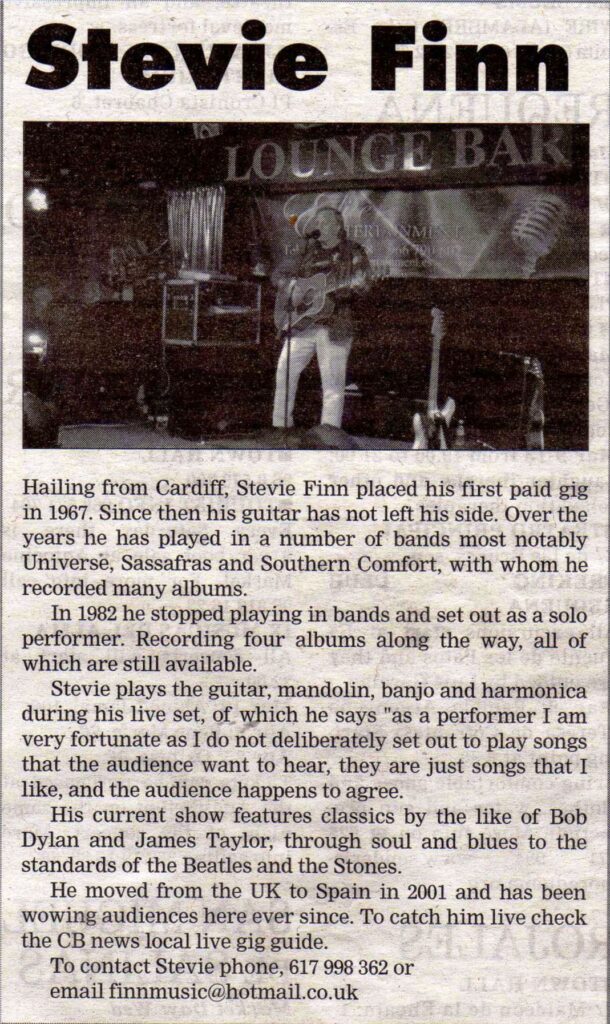
Looking back, what is the highlight of your time in the band? Which songs are you most proud of? What is the most memorable gig you played?
The most memorable songs I am proud of are from the first LP: Spanish Feeling, Cocaine (I found this on an ancient folk album by Rambling Jack Elliott and we worked on a “Prog” type arrangement), Waiting for Summer, two versions, the newer Rockfield demo which was put on The Wheel and the older one included in the seven-inch bonus. It was our first try at putting together a “Prog” style effort like Yes or King Crimson. The nineties recordings I am pleased with as they show how we have matured as musicians and writers since our earlier work. I attach Astral Plains, which I feel illustrates this.
The other tracks on the first LP, Universe and Rolling, show our blues roots. Twilight Winter was déjà-vu time. We wrote it before the Norway trip but found ourselves right in it. The Annexe was a jam from the Hamburg days of playing long sets. Bleak House was a thank you for the hospitality and friendship we were shown. Track 4 was just a mad moment on the last day.
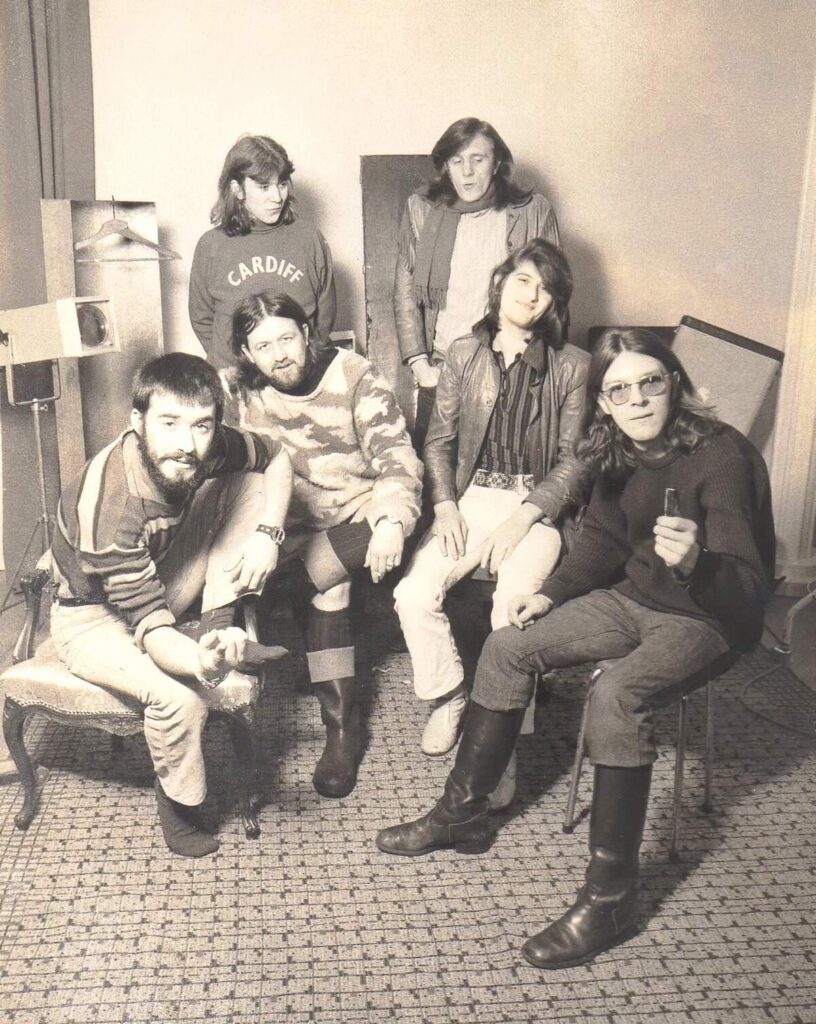
What followed for you?
Mike Lloyd and I were the only ones to continue with music. John Healan was a carpenter and moved to Cornwall in the South West of England. Mike “Sponge” built a small studio on a farm 20 miles from Cardiff and we continued to get together until he passed away in 2022.
I spent a few years in local cover bands until I went solo in 1982. Bars, restaurants, cafés, and clubs where I could sing what made me happy with an acoustic guitar and some harmonicas. I found an excellent Roland drum computer in the late 80s which gave a bit more punch to my sound. During these years I put out three cassettes of my own material for sale at gigs and then, when CDs became easier to reproduce, went with those. Six released up to now: a 50s Rock and Roll selection (Eddie Cochran, early Sun Elvis, Buddy Holly, Chuck Berry, etc.), a 60s combo of classics (Beatles, Roy Orbison, Animals), an acoustic set of mainly originals with a few covers, a full band electric set, again mostly new songs, a live issue recorded during my time in Spain (which I will go on to next), and lastly, during the Covid epidemic lockdown here in the UK, another full CD of tunes I had started but never finished.
I was reorganising my studio one day when I found a box file. Written on the lid was “Unfinished Stuff.” Inside were over seventy sheets of paper and a mini-disc. Each sheet was numbered and corresponded to a rough recording on the disc. Partly written tunes, lyrics, chord sequences, riffs, etc. I never realised I was so methodical. I had not opened that box in ten years or so.
As Covid meant no gigs, I spent three months working on this stuff, deciding what was usable and what was crap. This resulted in twenty-three completed songs, sixteen of which are now available on The Box File Recordings. The box still has about fifteen things that are worth pursuing but I cannot say at the moment when I may get around to doing them.
The Spanish Adventure. In 2001 Jane and I decided to decamp to Spain. We had been there several times; it is a very popular holiday place for nationalities from most of Europe. I had sat in bars and listened to many musicians earning their corn in the evenings. Some were very competent, some less so, and I felt I could make a reasonably good job of it. Also, on the plus side, the weather was warm and sunny nearly all year round with no rain, chilly winds, or snow. Attachments three and four are from Spain.
It was a good move for us, twelve busy, fruitful, contented years. The pull to come back to Wales came from two daughters and two fabulous grandchildren. So in 2013 we returned to Cardiff and I am still playing music. My oldest friend Mike Lloyd has had some health issues and sadly no longer performs, but he lives a couple of miles from me and we still meet. The recent interest in Universe is encouraging for both of us and we are grateful for anyone and everyone who wants to listen.
Klemen Breznikar
Ancient Grease Records Official Website / Facebook / Instagram

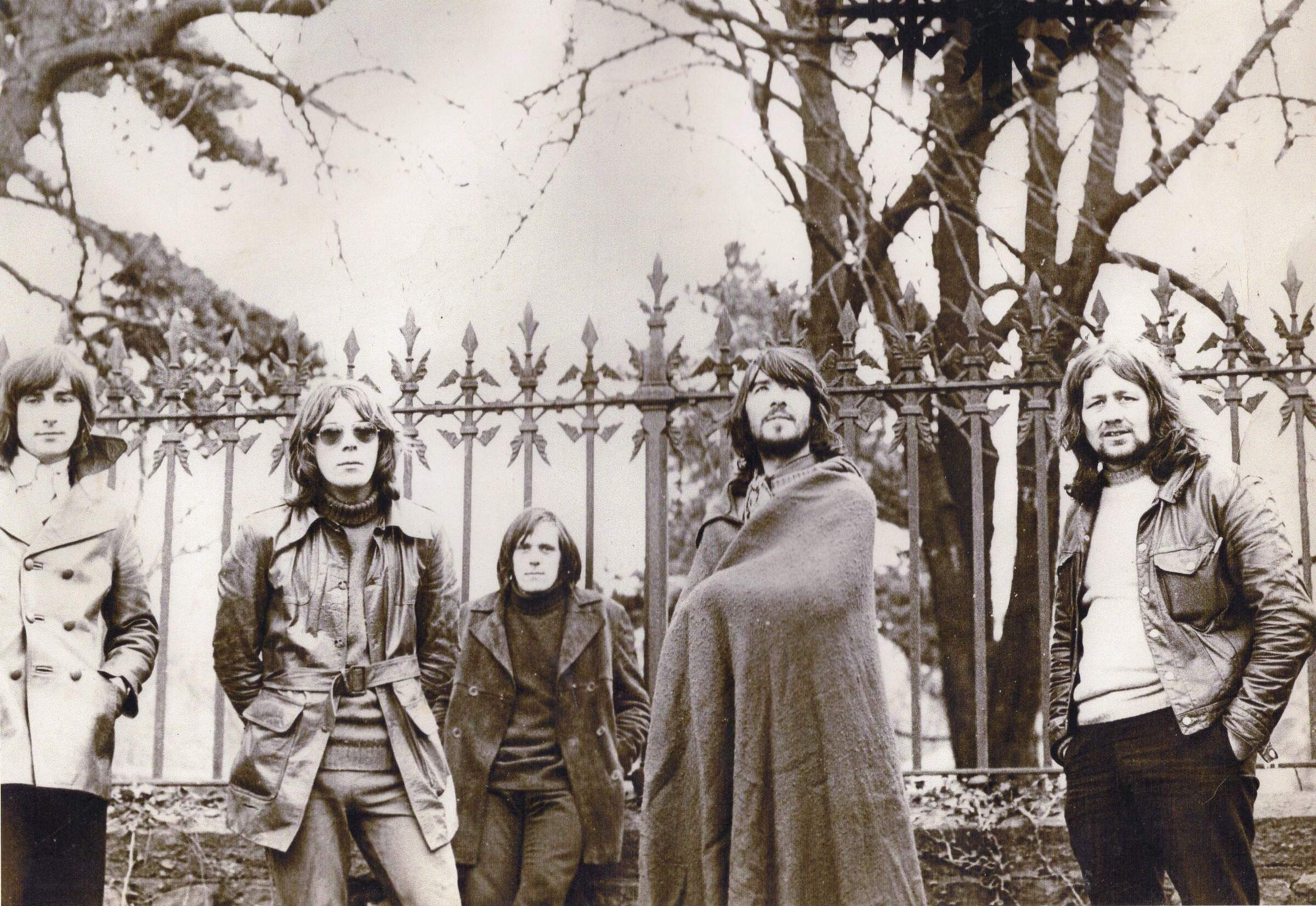
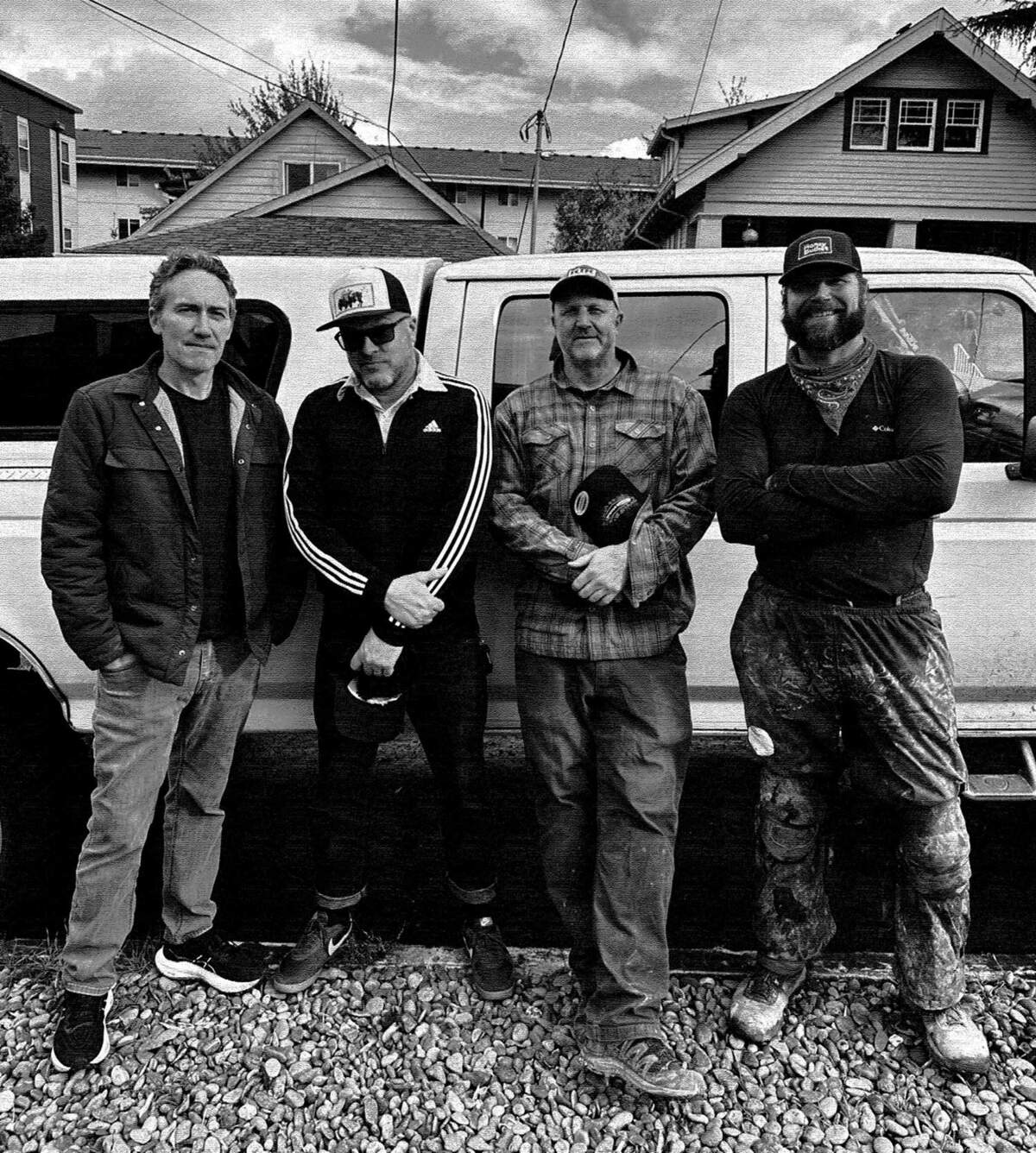
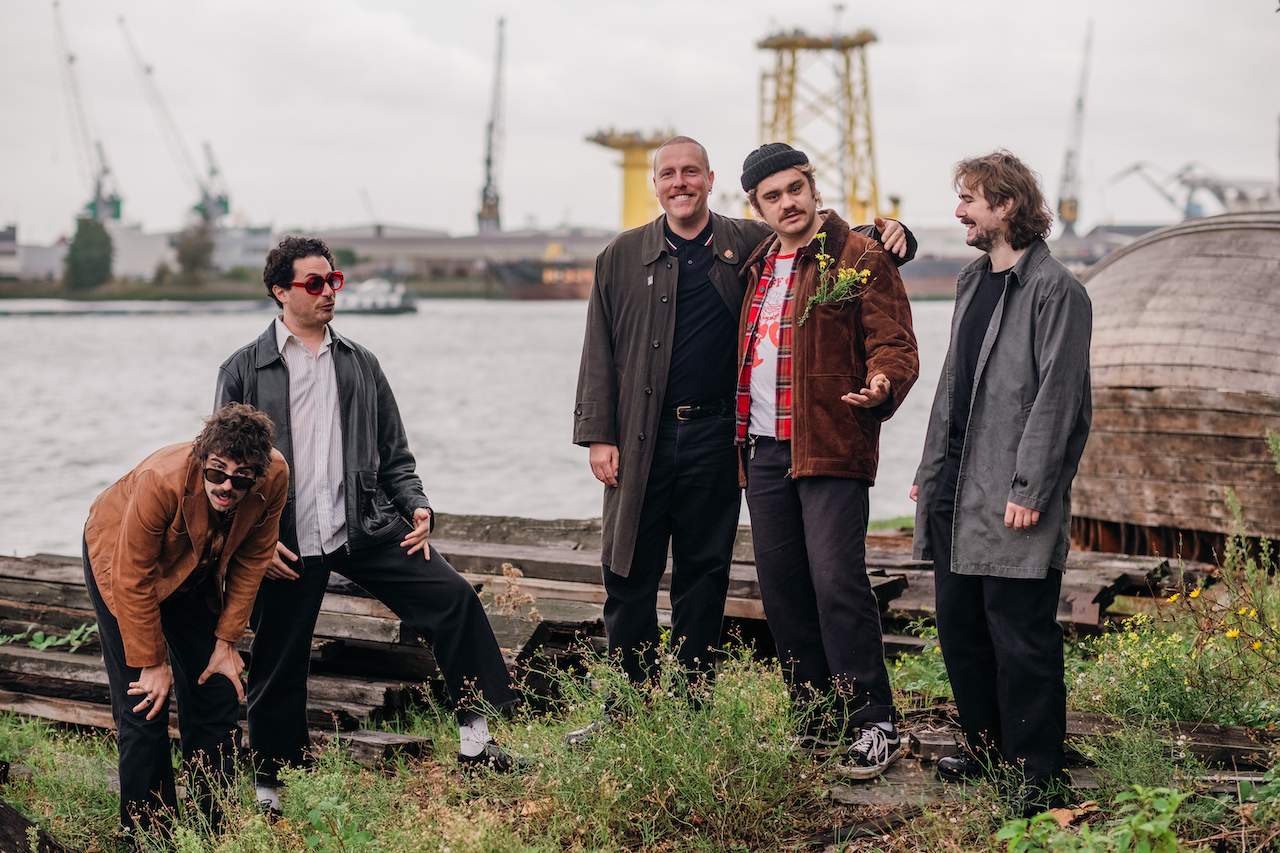
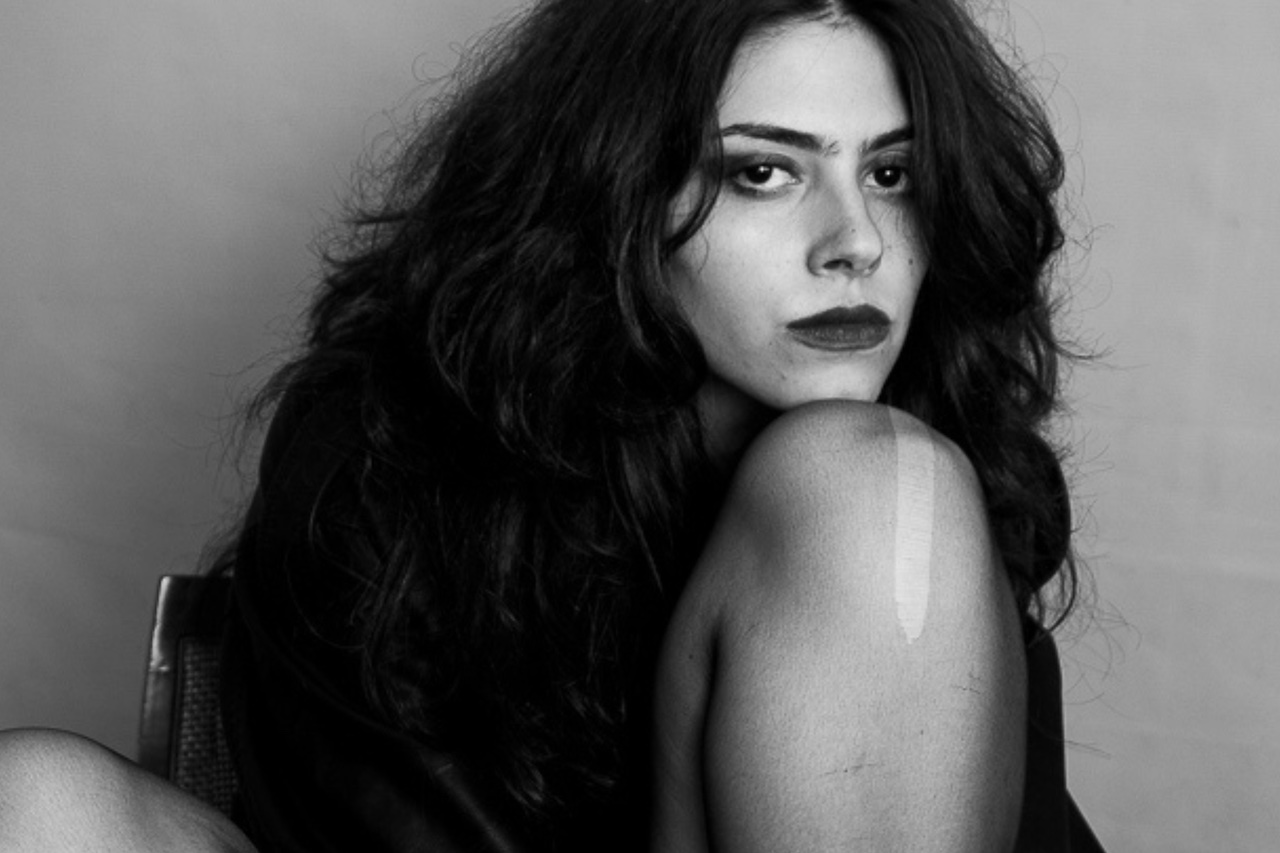
This was the first band I ever saw live at reading festival,they were amazing.